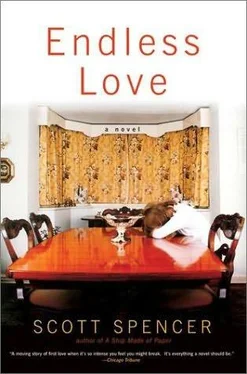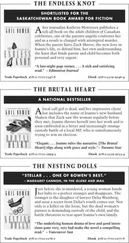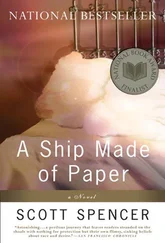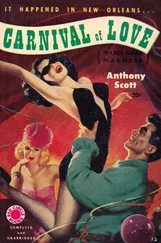In fifteen minutes it was over. An ambulance finally arrived and took Hugh’s body to a hospital where it could be pronounced dead officially. Newspaper photographers arrived and took pictures. There were a couple of reporters from a radio station, a TV station. Two cops arrived on scooters. The driver of the taxi—who hadn’t ventured out of his cab yet—and the driver of the van were both put into the back seat of a police car, though I couldn’t tell if they were being arrested or simply questioned. Ingrid rode with Hugh in the ambulance. Passers-by were asking the original witnesses to fill them in on what had happened. Someone in a baggy suit was marking off in chalk the area on 57th Street where Hugh had lain. Within a minute car wheels were rolling right through Hugh’s blood. It was a busy time of the day and there wasn’t time to clean it up.
I heard what the witnesses were telling the police and there wasn’t anything I could say that made any more sense. The person to worry about was that fellow driving the cab, but everyone said that Hugh bolted out into the street and it was clear that the cab driver wasn’t going to be blamed.
One of the cops asked if any of us had a statement to make, if we’d like to step forward as witnesses. One woman wanted to talk about the black man who’d put the dimes on Hugh, but that poor fellow had disappeared when the sirens were upon us and the police weren’t interested in him. Someone else wanted to complain about how long it had taken either a squad car or an ambulance to arrive. I was shaking quite a bit. I don’t know if tears were on my face but my eyes were full enough with them to make it hard to see. When the cop looked in my direction I glanced down and as subtly as I could turned around so that my back would be to him, as if I was looking for a friend or a public clock.
I set myself adrift through the crowd of onlookers and then into the stream of people walking up 57th Street who hadn’t seen Hugh lying on the street and who had other things on their mind: I joined the incurious who had better things to think about than those squad cars and their flashing lights.
There was nowhere to sit down. If I tried to stand still and catch my breath I’d be hit from behind, walked over. I was walking west; there were too many people for me to see what was in the shop windows.
I wondered if he’d said anything to Ingrid before setting off after me. Had he said, “There’s David Axelrod”? She hadn’t even looked at me; she didn’t seem to know who I was.
I had, I suppose, already decided to keep my part in Hugh’s death a secret; I hadn’t worked out any of the details. I wasn’t even thinking about it directly. My only calculation concerned Ingrid: I was a stranger to her and she hadn’t really looked directly into my face. Even if we were to meet at some future time, there was, I thought, every reason for me to hope that she would never be able to retrieve the image of me standing on that corner as all the life drained out of Hugh.
I was walking down the Avenue of the Americas. I stepped off the curb and raised my arm for a taxi. It was five thirty. I was going to call Ann in half an hour.
“Am I calling too early?” I asked, as soon as Ann picked up the phone.
I had the air conditioning running in my room and I was under the bed covers with my clothes on.
“No,” Ann said. “I’m glad for an excuse to stop. What’s wrong? You sound strange.”
“I fell asleep,” I said. “I’m just getting up.”
“Well, you sound dead. Why don’t you ring back when you’ve finished waking?”
“I’m up,” I said.
“Believe me, you’re not. I’m going to smoke a joint and listen to one side of my Erik Satie record. That gives you twenty minutes to take a cold shower or do some calisthenics. How long were you asleep?”
“Most of the afternoon,” I said. The first lie was complete now. I sat up in bed and looked around the room. I had committed myself to a mean and dicey strategy and I felt that lie as if it were a weight tied to my leg and dropped into a bottomless pit: you wait at the edge and watch the rope uncurl.
“Good,” said Ann. “I rested too. We can make it a late night if we want to.”
“I’ll come over in about an hour,” I said. I didn’t want her to suggest we meet somewhere else. I wanted Ann at home so someone could call and tell her about Hugh. The police? Ingrid?
But by the time I reached Ann’s, she still didn’t know. It was seven in the evening and the darkness’s only presence was in the lengthening shadows. Ann was dressed in striped seersucker pants and a boyish shirt. Her hair was wet and combed straight back and her face was paler than before and her lipstick darker. She’d been writing all day and that’s what we talked about.
“I can feel myself getting better,” Ann said. “I can hear my own voice now. I mean, I sound like myself when I write, and later on I recognize myself in a way that pleases me and surprises me, too.”
“Would you show me something you’ve written?” I asked. I was sitting on the sofa, rocking back and forth.
“You seem so nervous,” Ann said. “It’s about last night?”
“No.”
“Maybe we should talk about it, though. I’d like to let it rest, but you seem…”
“No,” I said, but it didn’t matter because now, finally, the phone was ringing.
“Ah!” said Ann, rising. “Opportunity. Fame. Romance.”
Ingrid. She was calling from a phonebooth. There was something she needed to discuss with Ann and she didn’t want to do it over the telephone. Could she come over? Right away? Yes, right away.
“What a peculiar mystery,” Ann said. “My guess is she wants to look me over, which is, if I recall, a common symptom of the matrimonial virus. Listen to me! I feel so cocktail-in-hand ex- wifey. But I feel such an advantage over Hugh’s new girl. With her hushed little voice and the bogus drama: she so wants to make an impression.”
I made a move to get up and Ann started in her chair as if she’d just remembered I was there. I wondered if she had any idea how nervous she was.
“Where are you going?” she asked.
“I’ll come back later. I’ll call in an hour or so.”
“No. Stay right where you are. We’ll make up a name for you, if that’s what you’re worried about. I like my little illusion of superiority and I don’t intend to cancel it out by letting Hugh’s girl find me all alone on a Saturday night. My generation places great mystical emphasis on Saturday nights and I know that’s the first thing Hugh will ask her, if I was alone. Let him think I was with some young hip man. It’ll do us all a lot of good.”
And so I waited with Ann, in a position so profoundly false that the highest pitch of madness could not have felt more strange. Of course, it was not the first lie I’d told in my short, evasive life, but it was by far the most enormous. This was no social lie, no defense of my privacy, and this was in no way on a par with the careful deletions I made in my monologues with Dr. Ecrest, or my upbeat progress reports to Eddie Watanabe. The lie I’d told to Ann loomed over, darkened, and then devoured all the truth that was in me. The popular expression is “living a lie” but you don’t live it, you live in it, the way you might live in a cave.
I thought suddenly, sickeningly, with that sense of relief that slows the racing heart by stepping on it, that there was a good chance no one would ever guess my part in Hugh’s death. Only Ingrid could connect me to that moment, and with a gambler’s feverish keening prayer—it moaned through me in a fretful, spacy tone, chanting like a man at the top of a mosque—I begged the future to make Ingrid innocent of all knowledge of me. Of all she’d seen that afternoon—Hugh’s race into the path of that cab, the black man with his dimes, the driver of the florist’s van dabbing at his forehead, the refraction of the sun off the policeman’s spiral notebook—I hoped that my face existed in her memory only as so much kindly vapor. My lie, my need to remain near the wounded core of the Butterfields’ life, my slow way back to Jade—everything finally depended on Ingrid’s not recognizing me, the way a smuggler’s run, months in the planning, depends finally on a heavy fog for its success.
Читать дальше












